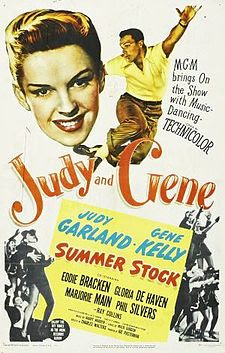The story opens with locals concerned about the lawless Fleagle gang just as professional pollster Pete Marshall (MacMurray) arrives in town looking for his missing coworker. Pete soon discovers that his predecessor had a fateful encounter with the Fleagles, who also take Pete prisoner with the intention of murdering him. The Fleagle matriarch, Mamie (Marjorie Main), spares Pete so she can use him to get dying Grandma Fleagle (Mabel Paige) to reveal the location of a fortune in stolen cash, but Pete only acquires a confusing clue before the old lady expires. Everyone in the house rushes to find the loot while thwarting or betraying the others, but the confusion increases when two different women claiming to be Bonnie Fleagle turn up and demand the money.
The Fleagles are as nutty and sinister a gang as any madcap comedy could invent, but their wackiness overpowers their ability to terrorize. Main leads the pack as bad-tempered but duplicitous Mamie, alternating between imitations of human tenderness and cracks of her much-used whip. The role lets Main cut loose with an extreme version of her usual character type; Mamie is a rough matriarch with no heart of gold to redeem her brusque manner. Mamie's current husband, a mild-looking little man named Mr. Johnson, is played by comedy stalwart Porter Hall with sly amiability and amoral intentions. Peter Whitney does double duty as identical twins Bert and Mert, a hilarious gag that the picture fully commits to in repeated scenes that frequently have Whitney acting against himself. Of the other family members, Grandma and the real Bonnie (Barbara Pepper) make brief but memorable appearances, while Jean Heather gets a sympathetic but rather tragic role as Mamie's daughter, Elany, a pretty sort of Ophelia figure whose main job is to sing the nonsense song wherein the clue to the stolen cash is hidden. Together they're a lot to keep track of as the rapid action unfolds, especially in a house full of trap doors, secret passages, and even radioactive poison. Each character, though, is played with enough energy and comedy to be memorable, even if nobody can tell Bert and Mert apart.
MacMurray and Helen Walker play the sane characters in the midst of this mayhem, but their roles also have great comedy moments. Walker's tough act in her first scene gives way to her development as the hero's love interest and partner against the Fleagles, but she gamely keeps up the deception for much of the movie. While he starred in dramas and serious films like Double Indemnity (1944), MacMurray is also widely celebrated as a comedy lead in pictures like The Egg and I (1947), The Shaggy Dog (1959), and The Absent-Minded Professor (1961). Murder, He Says belongs very much to the second set, despite its title, which recalls a song written for the 1943 film, Happy Go Lucky, and predates the arrival of the Miss Marple comedy, Murder She Said, in 1961. As the unlucky but quick-thinking Pete, MacMurray is constantly on the move, falling into traps, climbing out windows, and always trying to stay one step ahead of the violent but incompetent Mert and Bert. His scenes with the imaginary ghost are especially fun and will remind viewers of Harvey (1950), which might well be intentional as the original stage version had appeared in 1944.
For more of Marjorie Main's comic roles, see The Women (1939), Heaven Can Wait (1943), and The Harvey Girls (1946). George Marshall's other comedy films include The Ghost Breakers (1940), Hold That Blonde! (1945), and Scared Stiff (1953). Look for Helen Walker in Brewster's Millions (1945), Cluny Brown (1946), and Call Northside 777 (1948). Jean Heather appears in supporting roles in Double Indemnity and Going My Way (1944), but her film career was cut short by a 1947 car accident that damaged her face. If the clue tune in Murder, He Says sounds weirdly familiar, you probably listen to NPR's All Things Considered, which features an identical song as its theme music.
You can find Murder, He Says on DVD or stream it on The Criterion Channel (as part of the December 2022 Screwball Comedy lineup).








